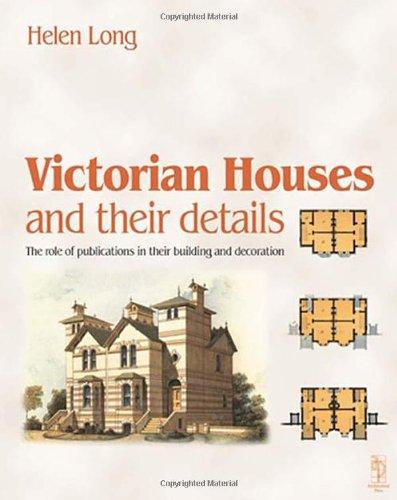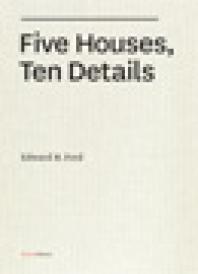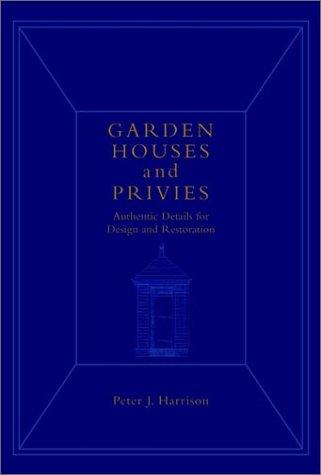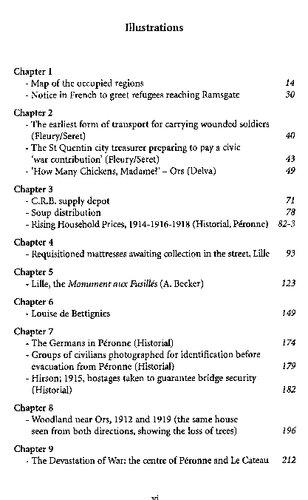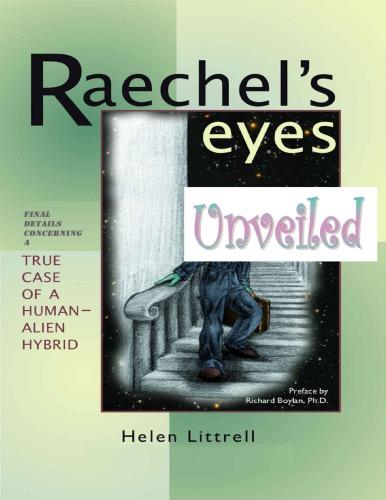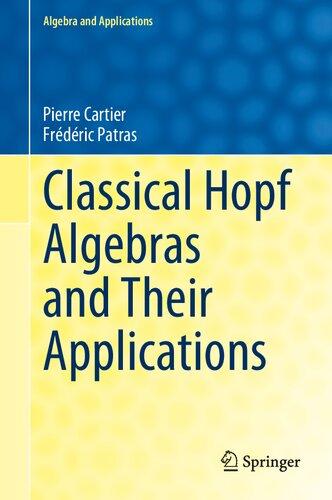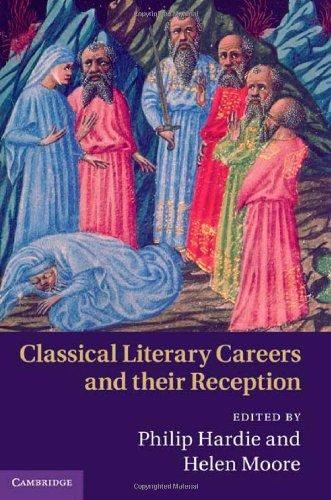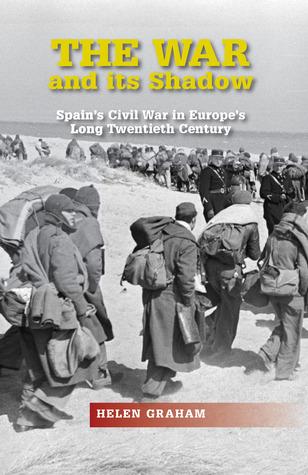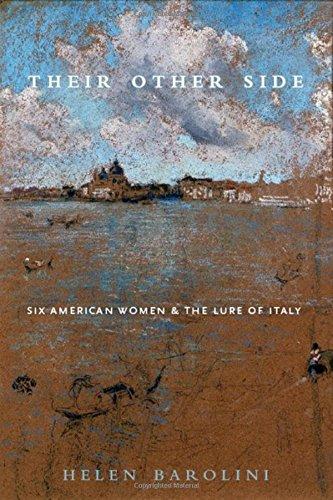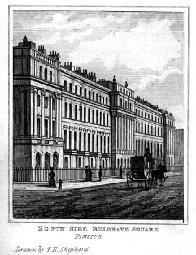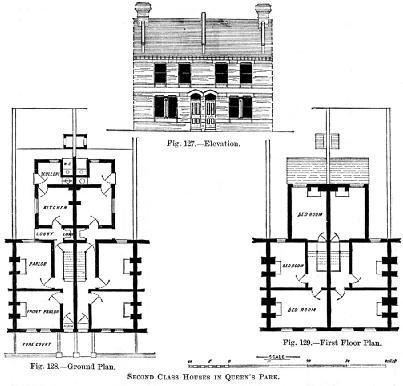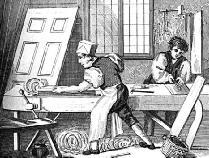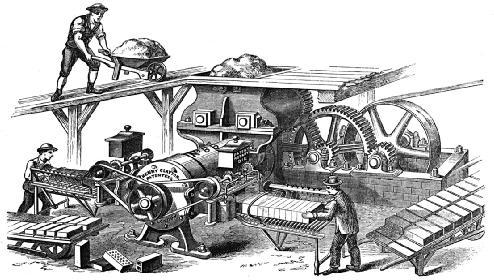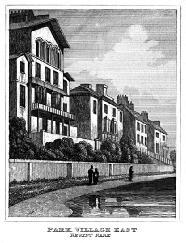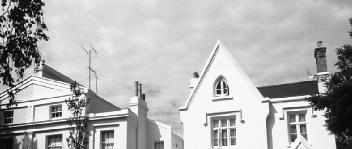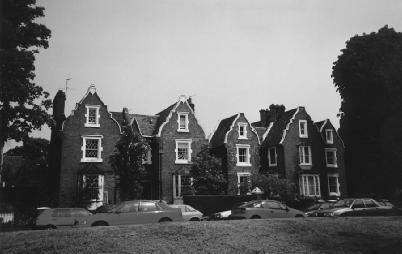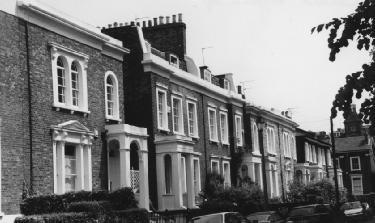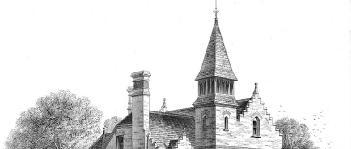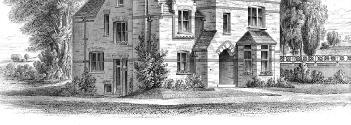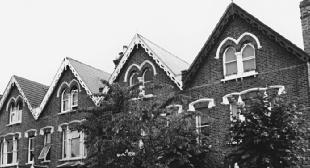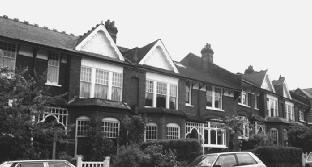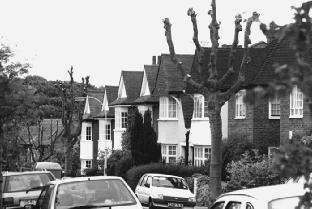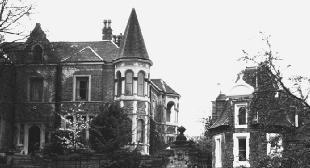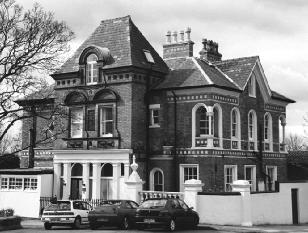Random
documents with unrelated content Scribd suggests to you:
educated at the Seminary of Quebec, and graduated bachelier-èslettres etès-sciencesat Laval University, where he also followed the law course for three years. He then entered the law office of L. G. Baillairgé, in Quebec, and was called to the bar of the province on the 8th of October, 1866. He practised his profession in Quebec, forming partnerships successively with A. Benoit, H. J. J. Duchesnay, and J. E. Bédard. In 1879 he was made a Queen’s counsel; and was elevated to the bench on the 12th of April, 1886, on the death of the late Judge Mousseau. Judge Pelletier was married twice, the first time to Tharsile Gourdeau, a daughter of F. Gourdeau, who was harbor master of Quebec, in 1869; and the second time to Célina Moraud, a daughter of J. B. Moraud, N.P., of Lotbinière, in 1877.
Fizét, Louis Joseph Cyprien. This well known French Canadian poet was born in Quebec, on the 3rd October, 1825. His mother was Mary Powers, of London, England, daughter of an officer of the Royal navy; and his father the Hon. Louis Fizét,— descended from an old French family which left Dieppe, in Normandy, in 1656, and settled in Canada,—held several important official positions, including that of district judge for the district of Gaspé, and took an active and influential part in the political events that occurred in the district of Quebec anterior to the year 1840. He died in January, 1867. At a meeting of the bar of Lower Canada, held in the city of Quebec, on the 8th of that month, Hon. Charles Alleyn being in the chair, the following resolution, amongst others, was unanimously adopted: “Proposed by the Hon. J. N. Bossé, seconded by Charles J. Holt, Esq., Q.C., and resolved, that this section of the bar believes it to be its duty to render homage publicly to the memory of the deeply lamented Hon. Louis Fizét, to his virtues as a citizen, upright and honorable, who has given universal satisfaction in the fulfilment of the duties of the various public offices which he has filled, and who has deserved from all the highest testimonials of esteem in his public and private life by his constant affability, courtesy, and kindness of heart.” Louis Joseph C. Fizét, the subject
of our sketch, received his education at the private school of the celebrated Doctor Wilkie, and subsequently at the Seminary of Quebec, where he had for professors, among others, the Rev. Alexandre Taschereau, who is now his Eminence Cardinal Taschereau; the Rev. Jean Langevin, now his Grace the Bishop of Rimouski; and the Rev. M. Bouchy, a distinguished French professor of rhetoric. At this latter institution he exhibited a more than ordinary aptitude and taste for literature, which evinced at this early period, that he was likely to shine as a literary man of ability later on, and which expectation has since been fully justified. As an instance of his early taste for literature, at the age of twelve years he wrote a story entitled “Vincent, le Naufragé,” the fruit of his young imagination, though distantly connected with Robinson Crusoe. When the manuscript was concluded, he would not be satisfied until he had illustrated it with colored designs, showing his hero in various adventures, and then bound it with his own hands. This early effort, though far from being a masterpiece, showed the bent of his mind at that early age. Mr. Fizét has travelled through Europe, and is well acquainted with all its more important cities, hence his natural talents have had the advantage of development through observation of the habits and customs of peoples of many different nationalities. While in Dieppe, in Normandy, France, he called on the mayor of that city, who courteously gave him an opportunity of consulting its archives. He there found the certificate of birth of the founder of his family in Canada, to whom he had traced his origin by means of certain documents and the registers of births deposited in the archives of Quebec. The certificate of birth of his ancestor, found at Dieppe, is in the following terms: “Le 31 août, 1635, est né dans cette ville Abraham, fils d’Abraham Fizét et de Catherine de la Brecque, nommé par Jacques de la Brecque et Catherine de Caux, lesquels ont signé.” This certificate satisfied him that his family name ought to be spelled thus: “Fizét,” and not Fiset. He studied law under the Hon. Ed. Bacquet, who was later appointed one of the justices of the Superior Court, and the Hon. Charles Alleyn, Q.C., and at one time provincial secretary of the united provinces of Upper and Lower Canada, and was duly admitted
to the bar on the 24th of November, 1848. In 1849, like many of the young men of that time, he took an interest in politics, and was an ardent admirer of the late Sir L. H. Lafontaine, then at the head of the Lafontaine-Baldwin administration. On the day following the burning of the parliamentary buildings at Montreal, by an infuriated mob, he took passage for that city, then in the greatest agitation, and with many others, offered his services to the government to assist in the maintenance of order; but Lord Elgin, at that time governor-general of Canada, being averse to the arming of the citizens, his offer was not accepted. On that memorable occasion he wrote the following extemporaneous song which has remained in the possession of one of his then youthful friends, and which indicates the excitement prevailing at that period:
I.
Voyez venir la horde meurtrière . . .
Voyez venir les bourreaux de trente-huit!
Ils ont lancé la torche incendiaire
Contre nos toîts dans l’ombre de la nuit!
CHŒUR.
Serrons nos rangs, luttons contre l’orage . . .
Soyons unis, vaillants comme autrefois!
Courons, courons arracher à l’outrage
Nos saints autels, notre langue et nos lois!
II.
O Liberté qu’insulte leur audace!
C’est en ton nom qu’on veut nous égorger! . . .
Fille du ciel, protège notre race . . .
Accorde-nous l’honneur de te venger!
Serrons nos rangs, etc., etc.
III.
Vaincre ou mourir! fut le grand cri de guerre
Que nos aïeux ont cent fois répété . . .
Vaincre ou mourir! . . . Au sein de l’Angleterre
Qu’il retentisse! . . . il sera respecté!
Serrons nos rangs, etc., etc.
Later on, when the war feeling was at its height in Canada, and when hostilities were expected to break out between England and the United States on account of the Trent affair, he contributed to form a drill association, for the purpose of raising volunteer regiments, to assist the regulars in defending the country. One of the associations was called “Les Chasseurs de Québec,” and he wrote for them the following song, so far inedited:
LE CHANT DES CHASSEURS.
I.
Entendez-vous ces cris de rage?
L’aigle du nord, vainqueur là-bas,
Vient assouvir sur ce rivage
La mort qui le pousse aux combats!
Marchons! sa haine héréditaire
Nous vaudra de nouveaux lauriers . . .
Pour nos autels, pour nos foyers
Soyons un peuple militaire!
CHŒUR.
Ce bruit sourd qu’apporte le vent,
C’est la voix du canon qui tonne! . . .
A la baïonnette . . en avant!
Pressons le pas; la charge sonne!
Pour chasser les envahisseurs
Soyons chasseurs! Soyons chasseurs!
II.
Dans la paix vous trouviez des charmes,
O vous, qui révez le bonheur!
Mais, Dieu le veut! l’appel aux armes
Nous guide au sentier de l’honneur . . .
Amis, nous sommes de ces races
Que la peur ne flétrit jamais!
Anglo-Saxons, Normands Français,
De nos aïeux suivons les traces!
CHŒUR.
Ce bruit sourd, etc., etc.
III.
Gloire à toi, jeunesse intrépide,
A toi le poste du danger;
Déjà ton cœur bat, plus rapide, Du noble espoir de nous venger!
La paix énervait ton courage . . .
Méprisant un lâche repos, Tu l’as compris, les vrais héros, Eclairs, jaillissent de l’orage!
CHŒUR.
Ce bruit sourd, etc., etc.
IV.
L’Américain ne fera guère
Dans nos hameaux un long séjour; Nos pères l’ont vaincu naguère
Leurs enfants le battront un jour!
Fils d’Albion, fils de la France,
On veut en vain vous asservir!
Soyons soldats! plutôt mourir
Que de perdre l’indépendance!
CHŒUR.
Ce bruit sourd, etc., etc.
Some time after, he was appointed lieutenant-colonel of the reserve militia. His intention had been to devote his life to politics, and the practice of his profession, having adhered for some time in politics, to the views of the late Hon. Joseph Cauchon, subsequently lieutenant-governor of Manitoba; but in 1861, he was offered, by the administration of Sir George Cartier, and accepted the office of joint prothonotary of the Superior Court, and still retains the position. Having exhibited such a taste for literature in his early youth, it is not surprising to find him with a strong tendency to poetry, which was developed so far that he is familiarly known as one of the poets of Lower Canada, for he has written some of the most graceful
poems and lyrics published in this country. Upon the occasion of the visit of his Royal Highness the Prince of Wales to Canada in 1860, M. Fizét was invited by Sir Hector Langevin, at that time mayor of Quebec, to compose the ode of welcome for that city to the young prince, which was much admired, and for which he was complimented and received the thanks of our good Queen’s son. Mr. Fizét was jointly with the Hon. M. A. Plamondon, the founder of the Canadian Institute of Quebec (“l’Institut Canadien de Québec”) of which he afterwards became president, and for several terms subsequently held, and still holds, the office of honorary president. In 1856, while holding this office, he offered thirty pounds for the best essay on the subject: “Quels seraient les moyens à adopter pour créer en Canada une littérature nationale.” In 1878, he also put up to competition a prize of twenty-five pounds, to be adjudged by the said institute for the best essay on the following subject: “Eloge de l’agriculture; de l’état de l’agriculture dans la province de Québec; des moyens à prendre pour en activer le progrès.” Hon. Senator Fabre, at present Canadian agent in Paris, France, in a public lecture delivered in Quebec, said, regarding the subject of this sketch, Mr. L. G. C. Fizét, “Imagination charmante, au vol gracieux; poète délicat, au vers élégant.” Most of his published poems have appeared in La Ruche Littéraire, Les Soirées Canadiennes, La Littérature Canadienne, LeFoyerCanadien, Lejournaldel’Education, and some of the leading French journals. The following extracts from “L’Histoire de la Littérature Canadienne,” by Lareau, of Montreal, may possibly tend to show the high repute in which M. Fizét is held in that city. In 1867, Mr. Fizét obtained the silver medal, at a poetical competition, opened to all comers, by the Laval University, on the following subject, viz., “The Discovery of Canada.” The competitors were numerous, and the report of the jury, speaking of his poem, read as follows; “A happy variety of rhythm, adapted with great art to the different parts of the subject, a great elevation of style and ideas, life and brilliancy, real lyrical inspiration which sustains itself nearly from one end of the poem to the other. The first two chants have merited a very particular mention for their loftiness of ideas, and the sustained beauty of the versification.” In 1873, M. Fizét was
preparing a complete edition of his poems and lyrics, most of which were unpublished when his manuscripts were burnt and lost in the Court house of Quebec, which was destroyed by fire on the 1st of February, of that year. Ever since, his numerous official and other occupations have prevented him from devoting any of his time to the restoration of his lost manuscripts, and the further culture of literature, but with the high commendation he has so deservedly received, emanating from the source it does, it may well be remarked, that Quebec, with honest pride, gratulates itself that she possesses such a poet and scholar in one of her sons, as we find the subject of our sketch, who in various situations, some of them very trying, as we are told, has always shown a kindly disposition, a high sense of honor, a remarkable combination of powers, great sagacity, integrity of motive, energy of character and undaunted will-power as testified by general report. His motto is, “Fais ce que dois, advienne que pourra.”
Kilgour,
Robert, Paper Bag Manufacturer, Toronto, was born at Beauharnois, province of Quebec, on the 29th April, 1847. His father, William Kilgour, was a native of Edinburgh; and his mother, Ann Wilson, a native of Loch Winnoch, in Scotland. Both came to Canada while young, and after marrying settled in Beauharnois, where Mr. Kilgour carried on the carpenter and building trade. Robert received his education at the public school of his native town, and when a lad entered the office of Messrs. Molson, of Montreal, where he remained for some time. He then came to Toronto, and became book-keeper for Livingston, Johnson and Co., wholesale clothiers, and here remained until 1870. He then returned to Montreal, and went into the paper bag business in partnership with J. C. Wilson, and on the expiration of this partnership, in 1874, returned to Toronto and established, with his brother, Joseph Kilgour, the business of Kilgour Brothers, paper bag manufacturers, who are now carrying on the largest business of its kind in Canada. Mr. Kilgour is a very active citizen, and takes part in everything tending
to elevate the race. For a number of years he has been treasurer for the Young Men’s Christian Association, and is also connected with several other benevolent institutions. In politics he is a Reformer; and in religion a member of the Presbyterian church. On the 15th July, 1886, he was married to Clara, daughter of the late William Govan, manufacturer, who for a number of years was one of Glasgow’s (Scotland) greatly respected magistrates.
Casgrain, Thomas Chase
, Q.C., LL.D., M.P.P., Advocate and Professor of Criminal Law at Laval University, Quebec, was born in Detroit, Michigan, on the 28th of July, 1852. He is descendant from one of the oldest French families in Canada. His paternal ancestors belonged to an ancient family at Ervault, in Poitou, France. The first who came to Canada was Jean Baptiste Casgrain, an officer in the French army, who landed about 1750. His son, Pierre, was lord of the Seigniories of Rivière Ouelle and L’Islet. Maternally he is descended from Jacques Babie, an officer of the Regiment of Carignan-Salières, who landed in Quebec in 1665, and whose descendants of that name have occupied high and responsible positions in the country. His grandfather was the late Hon. Charles Eusèbe Casgrain, lieutenant-colonel, unattached, who sat for Cornwallis in the Lower Canada Assembly from 1830 to 1834, was a member of the Special Council of Lower Canada from 1838 to 1840, and at his death held the office of assistant commissioner of Public Works of Canada. His father, the Hon. Charles Eugène Casgrain, C.M., M.D., is one of the senators of the Dominion. He was educated in Quebec, and studied medicine in McGill College, Montreal. He began the practice of his profession in Detroit, U.S., in 1851, but removed to Sandwich in 1856, and now resides at Windsor. He has held various prominent positions in his country; and was created a knight of the order of the Holy Sepulchre in 1884. He was called to the Senate in 1887. His mother is Charlotte Mary Chase, a daughter of the late Thomas Chase, of Detroit, Michigan, and Catherine Caroline Adelaide Bailli de Messein, of Quebec. Thomas, the subject
of our sketch, is the eldest son of this union. He was educated in classics at the Quebec Seminary, in Quebec, where he graduated with high honors in 1872, having stood at the head of his class for five years. In mathematics, sciences, moral philosophy, at Laval University, Quebec, and law, also at Laval, where he graduated a master-in-law (licencié en droit), summa cum laude in June, 1877, carrying off the Dufferin medal for that year. He was called to the bar in August, 1877, and settled in Quebec, where he began the practice of law in partnership with Col. Guillaume Amyot, M.P., whom he left in 1881 to join the extensive law firm of Langlois, Larue, Angers & Casgrain. Mr. Langlois having died, and Mr. Larue having been appointed a judge of the Superior Court, Mr. Casgrain, in 1887, on his appointment as a Queen’s counsel, became the senior partner of the firm of Casgrain, Angers & Hamel, which has one of the most extensive practices in the district of Quebec. He was appointed a member of the Law Faculty of Laval University in October, 1878, and its secretary in November of the same year. He was also appointed professor of Criminal Law in the same institution, and granted the degree of Doctor of Civil Law in October, 1883. He represented the Crown in Quebec with the late Judge Alleyn, at two terms of the Court of Queen’s Bench, criminal side, in 1882, and was deprived of the office by Attorney-General Loranger, because his views did not agree with those of the government on the sale of the North Shore Railway to Mr. Sénécal. He was junior counsel for the Crown at the trial of Louis Riel and other rebel leaders, at Regina, in July and August, 1885. Mr. Casgrain was chairman in 1879 and 1880 of the Cartier Club, a political organization; and is now one of the directors of the Conservative Club of Quebec. He was elected a member of the Legislative Assembly of the province of Quebec in October, 1886, by 196 of a majority, after a severe contest in which the Riel cry was worked to its utmost. His opponent was the Hon. Pierre Garneau, the leader of the PartiNational. He is a strong Conservative. He was offered the position of stipendiary magistrate for Alberta, when it became necessary to appoint a French magistrate, but he declined the honor. Mr. Casgrain is a nephew of the Abbé H. R. Casgrain, a celebrated French Canadian writer, and of P. B. Casgrain, Q.C.,
member of the House of Commons for l’Islet. He married, in Quebec, on the 15th May, 1878, Marie Louise, eldest daughter of the late Alex. LeMoine. McDonald, Alexander Roderick, River du Loup (en bas), province of Quebec, Superintendent of the Quebec and St. Flavie District of the Intercolonial Railway, and President of the Temiscouata Railway Company, River du Loup (enbas), Quebec, was born on the 9th of August, 1846, at Montreal. His parents were James Ronald McDonald, and Adèle Quevillon. He was educated at St. Hyacinthe College, and went through the classical course. Mr. McDonald entered the railway service, April, 1864, as station master on the Grand Trunk Railway, from which position he retired in October, 1871, to enter mercantile business in Kamouraska, Quebec province; but in January, 1880, he again entered the railway service as assistant superintendent of the Intercolonial Railway. In October, 1881, he was promoted to be the district superintendent of the same road, which position he now holds. In January, 1885, he formed a company for the construction of a line from River du Loup, Quebec, to Edmundston, in New Brunswick, under the name of the Temiscouata Railway Company, of which he was elected president, and which office he has held since. This line is now in an advanced state of construction, and will be completed in the fall of 1887. In politics, Mr. McDonald is a Liberal-Conservative, and in religion, a member of the Roman Catholic church. He has been twice married. First on September 14th, 1866, to A. Blondeau, of St. Paschal, who died 10th of February, 1873; and secondly, on May 16th, 1881, to Marie Langevin, of Quebec, sister of Sir Hector L. Langevin, minister of Public Works of Canada, and of his Lordship the bishop of Rimouski.
Clark, Rev. W. B., Quebec.—This worthy divine was born at Biggar, Lanarkshire, Scotland, on January 27th, 1805. His father
was William Clark, a respectable country merchant, who died when his son was only two years old. Thus in the providence of God the charge of a family of six devolved on his widow, Janet Brown, who did her best to bring them up in the fear of the Lord, to provide for their wants, and give them a good education. William was educated chiefly at the parish school of Biggar, where he obtained a knowledge of the elements of Greek, with a pretty accurate and extensive knowledge of Latin. But when he was ready to go to college, in consequence of family reverses he could not be sent. He remained some time at home therefore, and got a still more extensive acquaintance with the Latin classics. But he was anxious to do something for his own support, and betook himself to teaching. By the assistance of James Hogg, the “Ettrick Shepherd,” he was enabled to open a small school in the parish of Yarrow. Mr. Hogg kindly provided a school-room, with an apartment and free board for the teacher in the farm house of Mont Benger. This farm was rented by the poet, and was situated about a mile from the cottage of Altrive Luke, where he resided, and the house was occupied only by a servant, who looked after the cattle, etc. At that time Mr. Hogg had no children of his own old enough to be instructed, but he interested himself in this school partly for the accommodation of the neighbors, and partly, perhaps, from kindness to the young teacher, who had been introduced to him the year before by Henry Scott Riddell, who afterwards married his sister— the Eliza of one of his popular songs. During his leisure hours, Mr. Clark wrote a tale, which he showed to the shepherd, who made a large addition to it, and published it in Constable’s Magazine, and generously gave the money paid for it to the young teacher. At the close of April, when some of the young people had to resume field work, the school at Mont Benger had to be broken up; but Mr. Clark found employment at Manor, in Peeblesshire, where two farmers, for their own children’s sake, organised a school, in the house of one of whom—Mr. Murray, of Cademuir—the teacher was kindly and freely boarded. In the beginning of November, 1822, Mr. Clark entered the University of Edinburgh, having saved money enough to pay all personal and college expenses during the session. On going to
Edinburgh, Mr. Hogg furnished him with a letter of introduction to Professor Pillans, who treated him very kindly and presented him with a free ticket to his class. In this class he gained two prizes, one on the direct and indirect forms of speech, and another for superiority in private studies. At the close of the session he returned to his old employment at Manor, where he remained till the following November, when he went home to Biggar, where he taught a short time, and then accepted a school at Roberton, in Lanarkshire. About this time his mother died, and shortly afterwards, his own health failing, he returned to Biggar, and spent the summer and fall in teaching a son of Mr. Gillespie, Biggar Park. At the opening of the college session of 1824, he had not saved money enough to support himself and pay the necessary college expenses; but an old lady, a friend of the family, lent what was necessary to make up the deficiency. During this session, he seems to have devoted his energies chiefly to Latin, and gained a prize for an essay on the eighth satire of Juvenal. At the close of this session he received an appointment as tutor in a large boarding school at Eddleston, in Peeblesshire, where he remained for eighteen months. It was here that a favorable change took place in his spiritual condition. He had for a long time had doubts and difficulties on the subject of religion; but at this time, after a careful study of “Chalmers’ Evidences of Christianity,” his doubts were removed, his difficulties solved, and he became a believer in revealed truth, so far as the exercise of the intellectual faculties could make him so. From this time he had a deep conviction that the reading of the heathen classics had deeply injured his moral and spiritual condition. The contempt which an intelligent mind cannot but feel for the heathen mythology, seems to have confirmed his doubts in regard to religion altogether. And it is indeed surprising that Christian people should encourage the study of the heathen classics to the neglect of the ancient Christian classics. In this way we believe that unspeakable mischief is done. And there is no excuse for it; for some of the ancient Christian classics wrote sufficiently pure Greek and Latin. We have often been surprised that the dialogue entitled Octavius, of Minutius Felix, and the letters of Cyprian, bishop of Carthage, should not have been
generally introduced into our schools and colleges. Their latinity is beautiful, and their religious and moral teaching such as cannot fail to exercise a beneficial influence on all who read them with attention. The same thing may be said in regard to the writings of Justin Martyr, whose Greek, if not so pure as that of Xenophon or Plato, is sufficiently good for all practical purposes. His first Apology, addressed to the emperor Antoninus Pius, is especially valuable, and ought to be read by all students of divinity. On leaving Eddleston, at the end of October, 1826, he had saved money enough to pay the little debt which he had contracted the year before, and to meet all his expenses during the ensuing session at college. But before returning to Edinburgh, a friend had procured for him abundance of private teaching, so that he had now money enough and to spare. From this time he had private teaching enough, so that he no more required to lose a session at college. But what was of more importance, his faith in the glorious truths of the gospel was now confirmed, and he was growing slowly in grace and Christian experience. In 1828, Mr. Clark entered the Divinity Hall the same year in which Dr. Chalmers came to the University of Edinburgh as professor of divinity. It is needless to say that he profited greatly by the teaching of that devout and extraordinary man, who not only communicated instruction in the most effective and memorable manner, but infused somewhat of the fire of his own soul into the minds of his students. Mr. Clark not only made great progress in the systematic knowledge of divine truth, but imbibed something of the spirit of his master. One of the exercises prescribed to Mr. Clark was an exegesis on the subject, “An Christus sit colendus summo cultu deo patri debito?” that is, “Ought Christ to be worshipped with the supreme worship due to God the Father?” This led him to an investigation, on biblical principles, of the grand fundamental truths of the gospel, which resulted in a firm conviction in his mind of the truth of the grand evangelical principles embodied in the Westminster Confession of Faith. The preparation of this discourse produced a most salutary effect on his mental character; but it did more, it deepened his religious convictions, and called forth in his soul more lively emotions of gratitude and love to the God of
salvation. Soon after this, Dr. Chalmers recommended Mr. Clark for one of the government bursaries, and it was conferred upon him. The bursary was one of ten pounds a year; but it had been vacant for a year, so that he got twenty pounds sterling the first year and ten pounds a year for the two succeeding years. With his revenue from private teaching, this placed him in very comfortable circumstances. And as he succeeded about this time to a small property left him by his father, he had now more than sufficient for all his wants. In the summer of 1832, Mr. Clark was licensed to preach the gospel by the presbytery of Biggar, but as there was at that time a superabundance of preachers in connection with the Established Church, no opening appeared for him in that line, so he continued his labors as a private teacher. His work now consisted almost exclusively in assisting in their studies young gentlemen attending the Edinburgh Academy. About this time a society was formed by the preachers of the Establishment in Edinburgh for voluntary missionary labors among the poor in the most destitute parts of the city. Mr. Clark was chosen by the venerable Dr. Inglis to labor in his parish of Old Greyfriars, and the scene of his operations was the Cowgate, with the closes extending from it to the Lawn market and High street. Dr. Inglis soon after this died, and was succeeded by the Rev. John Sym, a young man of fine talents, very popular as a preacher, and of genuine Christian character. Mr. Clark was soon after his appointment introduced to Mr. Sym, when he engaged him at a respectable salary as his assistant, to labor among the poor of the parish. As Old Greyfriars was a collegiate charge, his services were not required in the parish church; but he preached regularly in an old church in the Cowgate, whose spire is still visible from the South Bridge. At that time it had passed out of the hands of the church, and was the property of the Society of Hammermen, who kindly gave the use of it for missionary meetings. It was in this church that the first General Assembly of the Church of Scotland was held, and it has now happily passed into the possession of the Free Church. The scenes of poverty and wretchedness and vice which Mr. Clark had to encounter in his visits among this people were often heartrending. On one occasion, when urging a poor woman to

